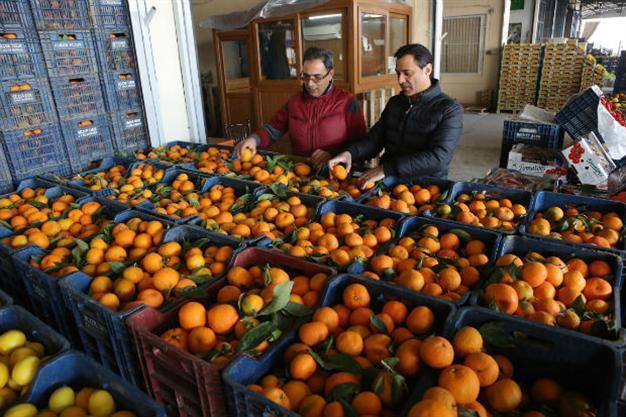Russian sanctions on Turkey to have limited effect: EBRD
LONDON – Anadolu Agency

DHA photo
The effect of sanctions imposed on Turkey by Russia will be limited, the European Bank for Reconstruction and Development (EBRD) said on Dec. 7.
The Russian sanctions were imposed after a fighter jet which had violated Turkish airspace was shot down on Nov. 24. Moscow later announced it was a Russian aircraft.
The measures imposed ranged from restricting visa-free travel to a ban on imports of certain foodstuffs and a ban on the sale of Turkish holiday packages to Russians by tourist agencies.
“The sanctions may reduce Turkey’s GDP growth in 2016 by around 0.3-0.7 percentage points, if they remain in force over the next year and are fully applied, with most of the impact related to tourism occurring around the mid-year,” the bank said in a statement.
However the bank pointed out there were risks for both the Turkish and Russian economies, as the two countries had strong economic ties in energy, food, tourism and construction projects.
“Deteriorating economic ties are likely to have a non-negligible, but not major, impact on Turkey’s GDP,” the bank said. But the bank warned increased friction between the two countries could lead to a disruption of Turkey’s energy supply.
“However, at this stage, a disruption to the energy supply seems highly unlikely,” the bank said. “However, a further escalation of the sanctions cannot be ruled out, in which case Turkey’s country risk premium and cost of funding could rise, causing a larger-than-estimated impact.”
The bank added the Russian economy also couldn’t pass through this crisis unscathed, as the sanctions may put upward pressure on import prices and inflation in Russia, adding an additional 0.1-0.2 percentage points through more expensive vegetable and fruit imports.
Also the probable rise of up to 25 percent in travel services costs over the next year after the travel ban to Turkey is expected to boost inflation a further 0.5 percentage points in 2016.
“If the situation escalates to the point of disrupting energy exports, the effect on Russia’s GDP will likely be negative,” the bank said.
“Turkey is the second biggest export market for Russian gas, with a $16.5 billion volume in 2014 [around 0.6 per cent of Russia’s GDP], providing 18.8 per cent of Gazprom’s revenues. Any disruption to this supply in 2016, which appears very unlikely at this stage, would harm Russia’s exports and GDP,” the statement said.
